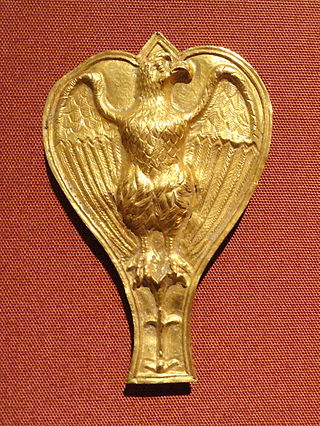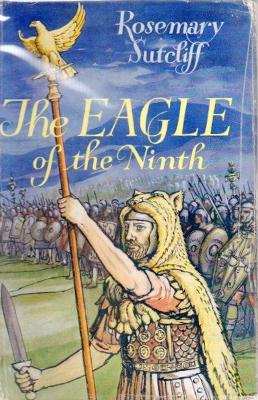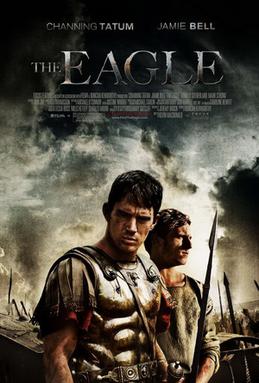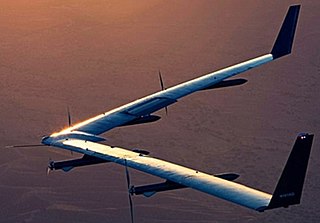
A cockpit or flight deck is the area, on the front part of an aircraft or spacecraft, from which a pilot controls the aircraft.

The Holodeck is a fictional device from the television franchise Star Trek which uses "holograms" to create a realistic 3D simulation of a real or imaginary setting, in which participants can freely interact with the environment as well as objects and characters, and sometimes a predefined narrative.

An aquilifer was a soldier signifer bearing the eagle standard of a Roman legion. The name derives from the type of standard, aquila, meaning "eagle", and ferre, the Latin word for bringing or carrying. Before that time, the wolf, boar, bull and horse were also used. The eagle standard was the most important possession of the legion, and its loss was a terrible disgrace.

A trainer is a class of aircraft designed specifically to facilitate flight training of pilots and aircrews. The use of a dedicated trainer aircraft with additional safety features—such as tandem flight controls, forgiving flight characteristics and a simplified cockpit arrangement—allows pilots-in-training to safely advance their skills in a more forgiving aircraft.

An aquila was a prominent symbol used in ancient Rome, especially as the standard of a Roman legion. A legionary known as an aquilifer, the "eagle-bearer", carried this standard. Each legion carried one eagle.

The Eagle of the Ninth is a historical adventure novel for children written by Rosemary Sutcliff and published in 1954. The story is set in Roman Britain in the 2nd century AD, after the building of Hadrian's Wall.
Nightmare of Eden is the fourth serial of the 17th season of the British science fiction television series Doctor Who, which was first broadcast in four weekly parts on BBC1 from 24 November to 15 December 1979.

Simon Scarrow is a British author. Scarrow completed a master's degree at the University of East Anglia after working at the Inland Revenue, and then went into teaching as a lecturer, firstly at East Norfolk Sixth Form College, then at City College Norwich. Simon is a patron of the Bansang Hospital Appeal which supports an outstandingly innovative hospital in The Gambia.

Wildsiderz is a comic book series created by J. Scott Campbell and Andy Hartnell, and published by Wildstorm Productions. It is the second series created by Campbell and Hartnell after their successful Danger Girl. It features a group of teenagers who, through newly developed holographic technology, can take on the powers of animals to fight a mad scientist.

The vexillum was a flag-like object used as a military standard by units in the Roman army. A common vexillum displayed imagery of the Roman aquila on a reddish backdrop.

The Silver Branch is a historical adventure novel for children written by Rosemary Sutcliff and published in 1957, with illustrations by Charles Keeping. Set in Britain in the last decade of the 3rd century, it is the story of Justin and Flavius, two cousins in the Roman legions who find themselves in the intrigue and battle surrounding the struggles between Carausius, a self-proclaimed emperor in Britain, Allectus, Carausius's treasurer, and Constantius, emperor in Rome.
"Brian the Brain" is the fifth episode of the second series of Space: 1999. The screenplay was written by Jack Ronder; the director was Kevin Connor. The final shooting script is dated 5 May 1976, with amendments dated 11 May 1976. Live action filming took place Tuesday 18 May 1976 through Wednesday 2 June 1976.

"Kang Dynasty", sometimes called "Kang War", is a 16 part comic book storyline which ran through Avengers #41–55 and Avengers Annual 2001 between June 2001 and August 2002. It was written by Kurt Busiek and illustrated by a number of artists including Alan Davis, Kieron Dwyer, Ivan Reis and Manuel Garcia.

There are many real and fictitious occurrences of concealing objects in a book. Items can be concealed in books in a number of ways. Small items such as a photograph or a note can be hidden in between the pages of the book. Thicker items can be hidden by removing the interior portion of some or all of the pages, creating a book safe or hollowed-out book. Book safes are easy for their owners to recognise, but they do not stand out to a thief or other intruder.
"Flesh and Blood" is a two-part episode from the seventh season of the science fiction television series Star Trek: Voyager. The crew of USS Voyager must contend with violent Delta Quadrant aliens the Hirogen, who use the holodeck technology with a horrific amoral twist.
Lego Mars Mission was a Lego subtheme to Lego Space that sold from 2007 to 2009. It is set on Mars and features astronauts, aliens, and high-tech machinery.

The phrase "when pigs fly" is an adynaton—a figure of speech so hyperbolic that it describes an impossibility. The implication of such a phrase is that the circumstances in question will never occur. The phrase has been used in various forms since the 1600s as a sarcastic remark.

The Eagle is a 2011 epic historical drama film set in Roman Britain directed by Kevin Macdonald, and starring Channing Tatum, Jamie Bell and Donald Sutherland. Adapted by Jeremy Brock from Rosemary Sutcliff's historical adventure novel The Eagle of the Ninth (1954), the film tells the story of a young Roman officer attempting to recover the lost Roman eagle standard of his father's legion in Caledonia. The story is based on the Ninth Spanish Legion's supposed disappearance in Britain. Historically, the purported disappearance of the Ninth Legion in Northern Britain is a subject of debate.

SimplePlanes is a simulation video game developed and published by the American indie studio Jundroo LLC. SimplePlanes followed the release of SimplePhysics and SimpleRockets and preceded Juno: New Origins and SimplePlanes VR. The game was first released on Mac OS X and Microsoft Windows and was ported to iOS and Android later. It was released onto Steam on 17 December 2015 after going through the Steam Greenlight process. The game received mixed reviews from users and video game reviewers, with the main downfalls mentioned the most being the "slippery controls" and the graphical design. However, it is known for its innovative, though sometimes complex, building mechanics. From 2014 until 2023, SimplePlanes has got 12 updates. The latest version, v1.12.200 beta, was released in September 2023.

The Facebook Aquila is an experimental solar-powered drone developed by Facebook for use as an atmospheric satellite, intended to act as relay stations for providing internet access to remote areas. The Aquila first flew on 28 June 2016 with a second aircraft successfully flying in 2017. Internal development of the Aquila aircraft was stopped in June 2018.
















